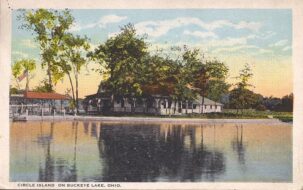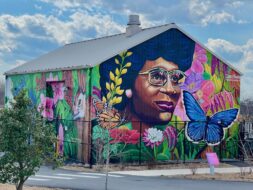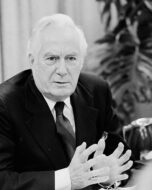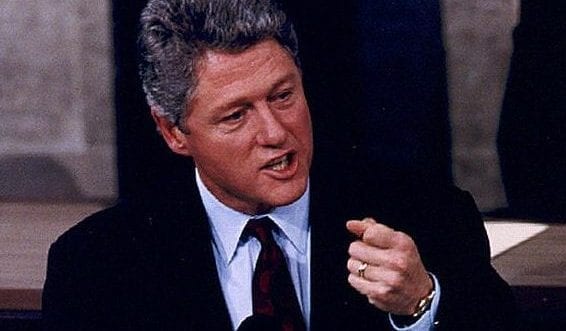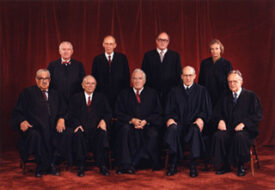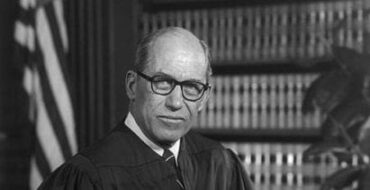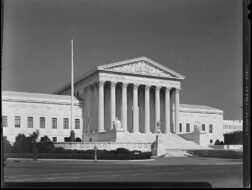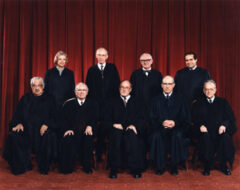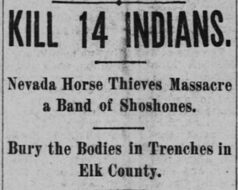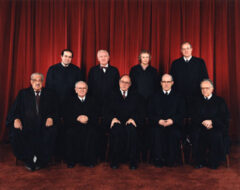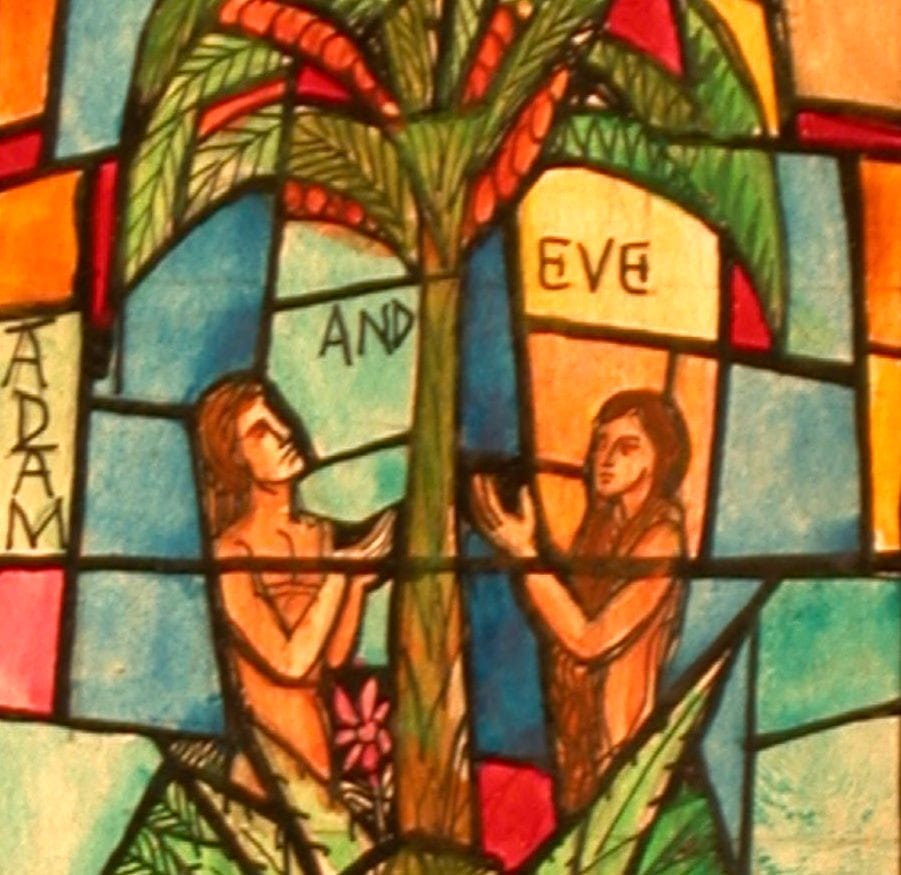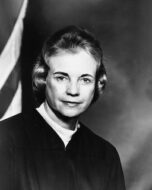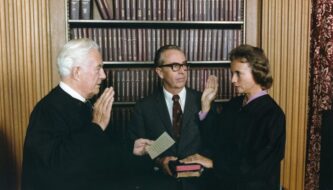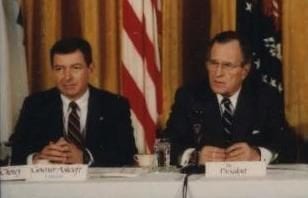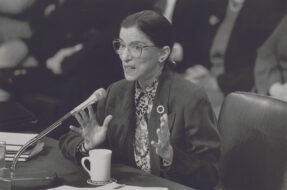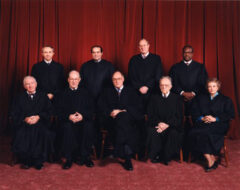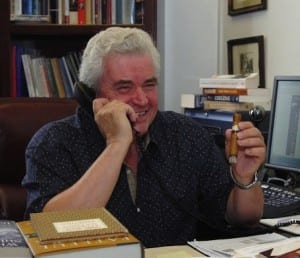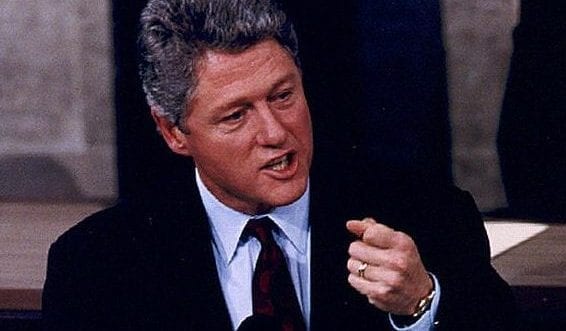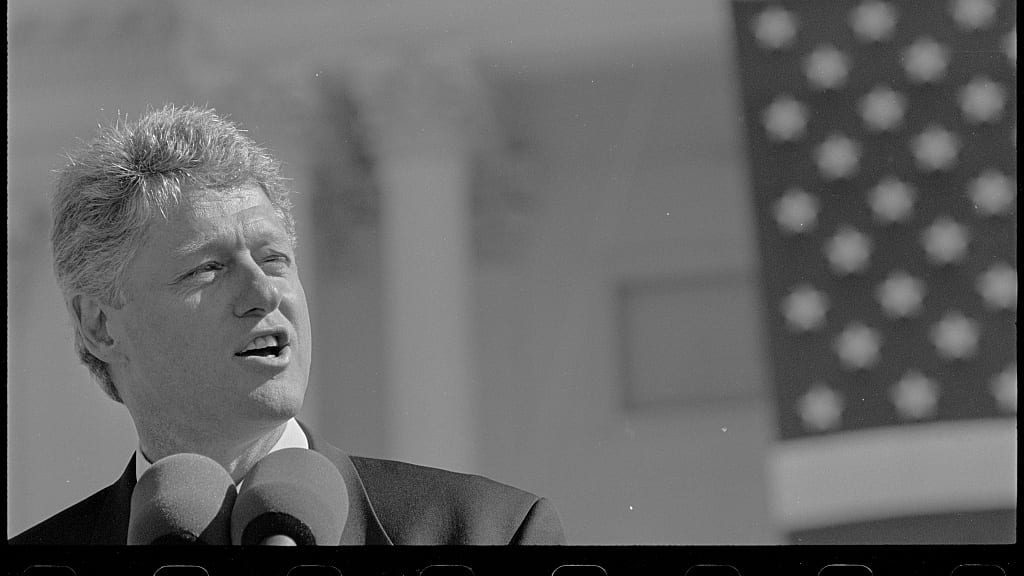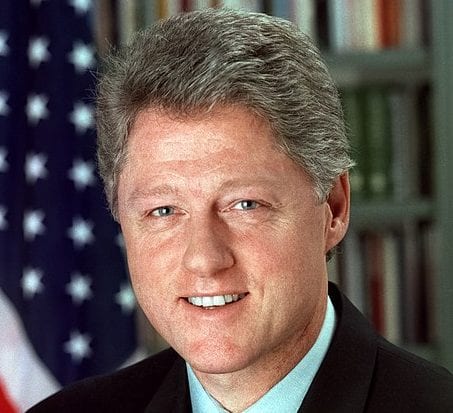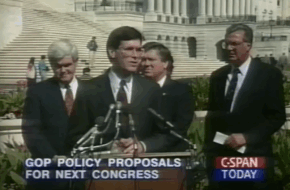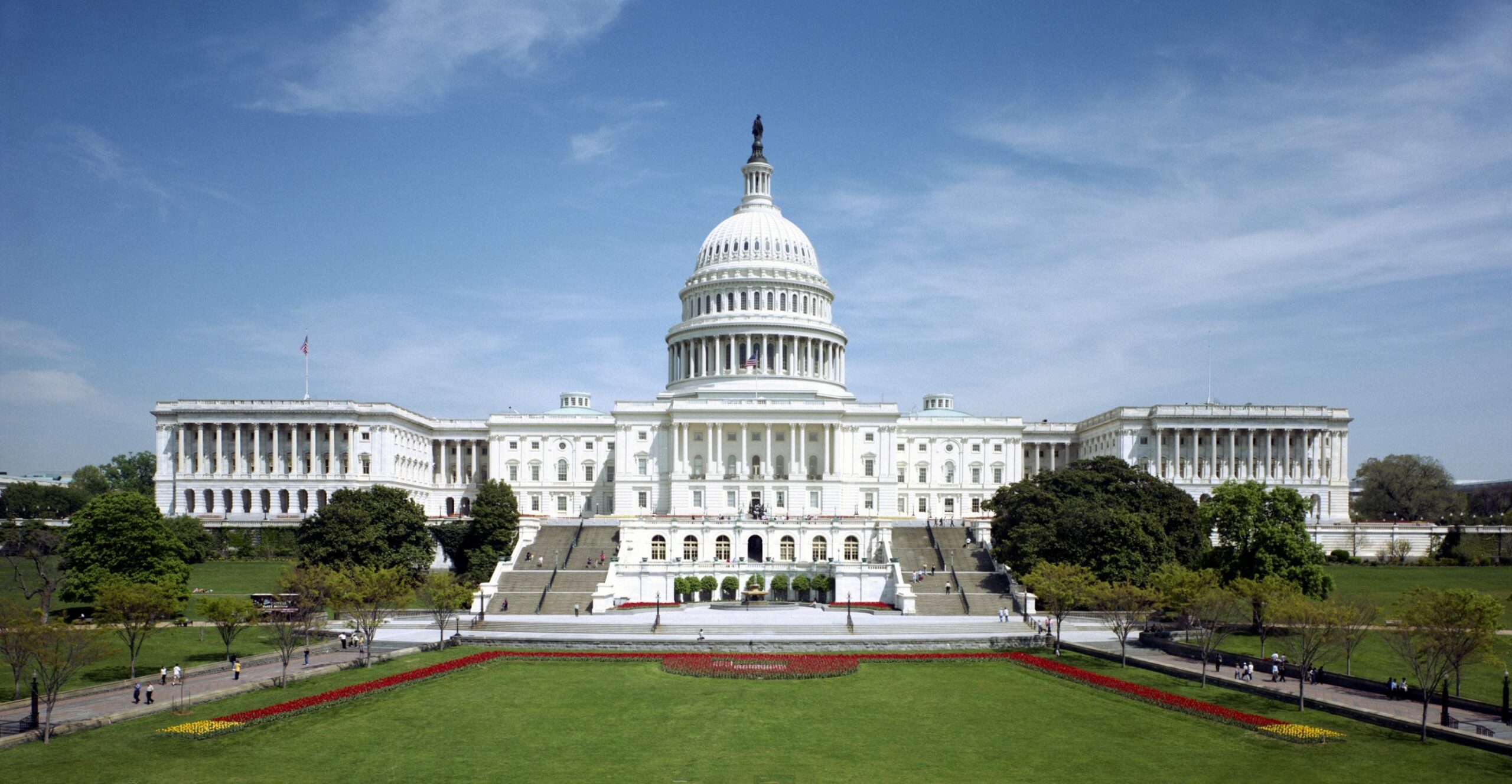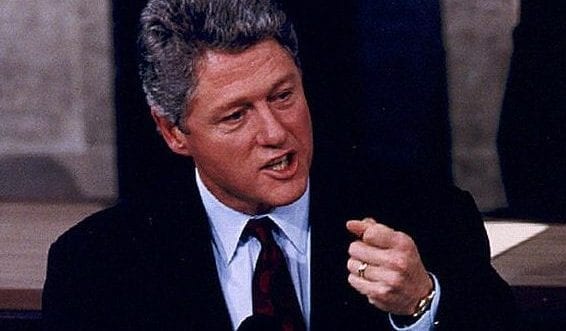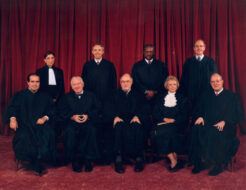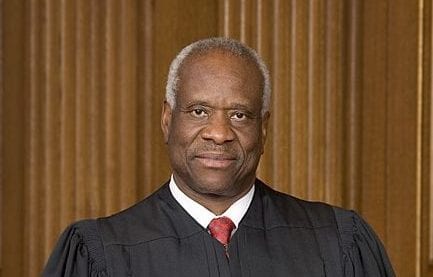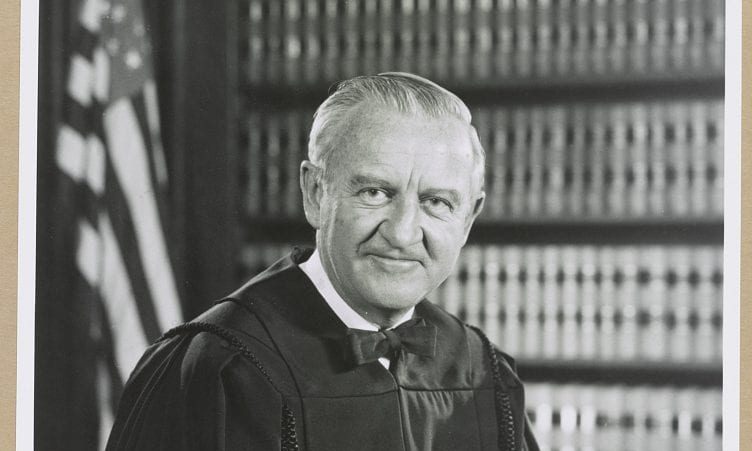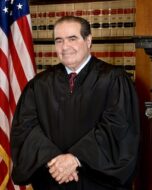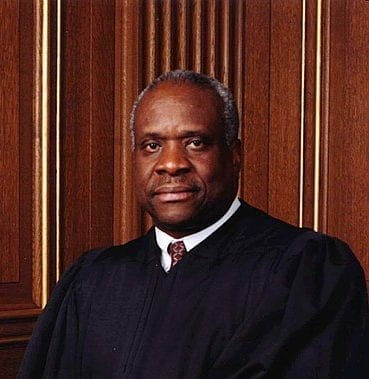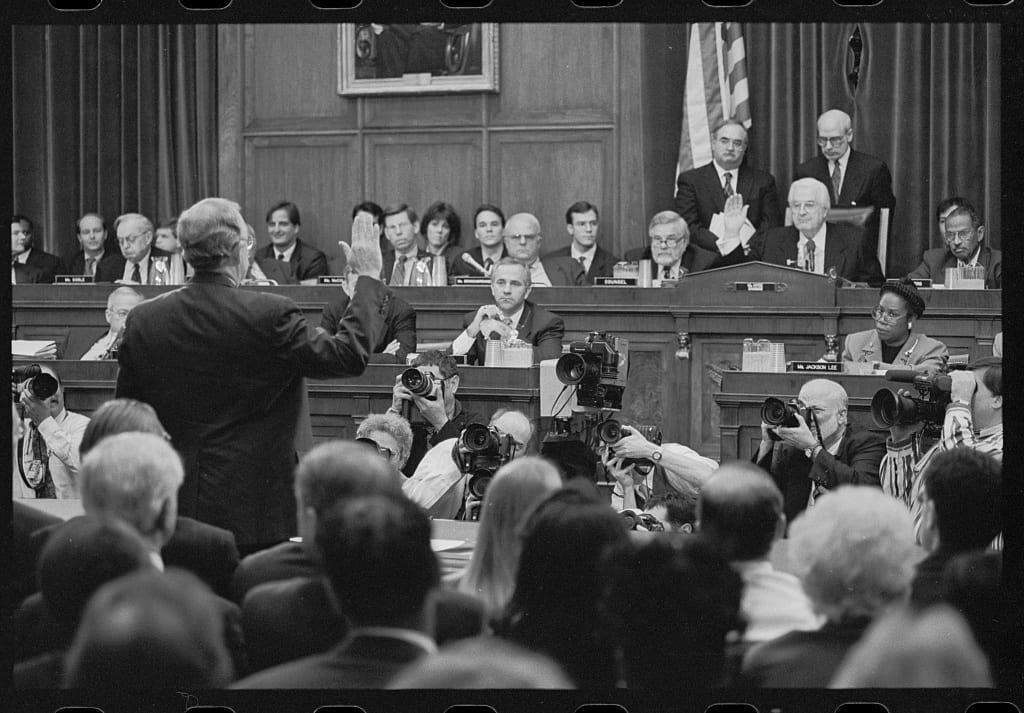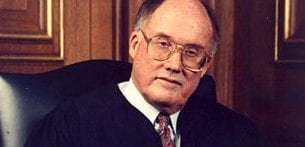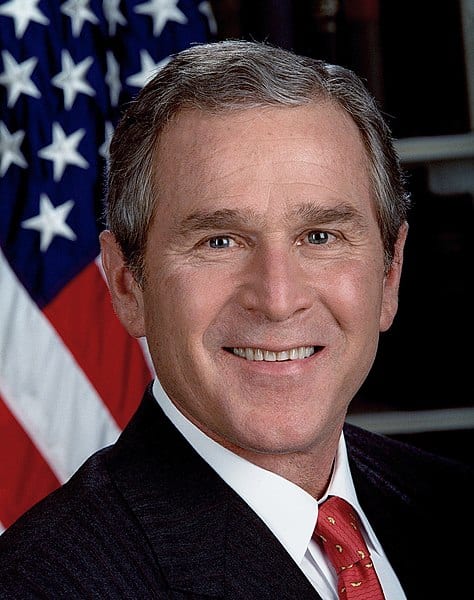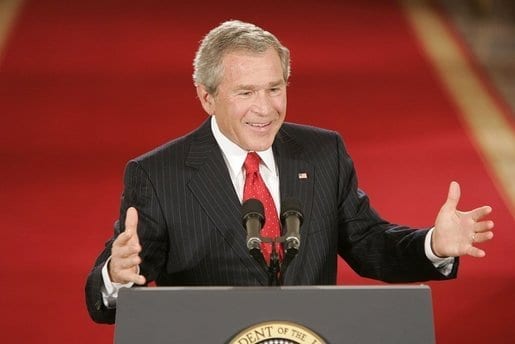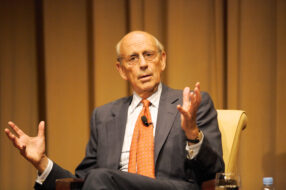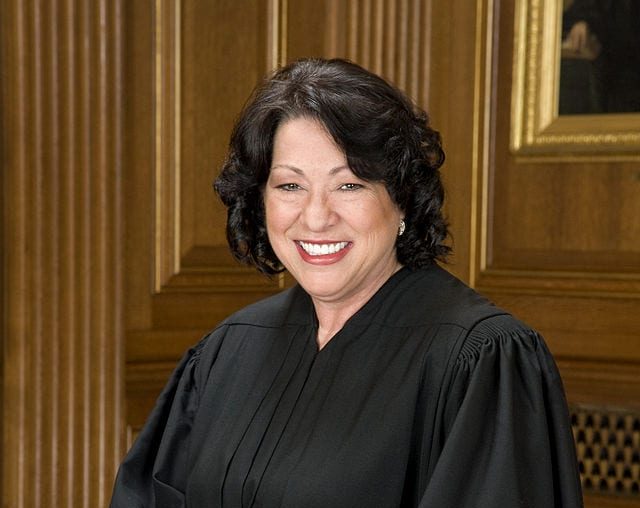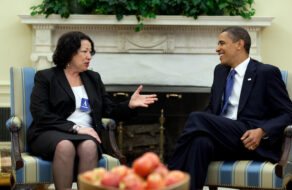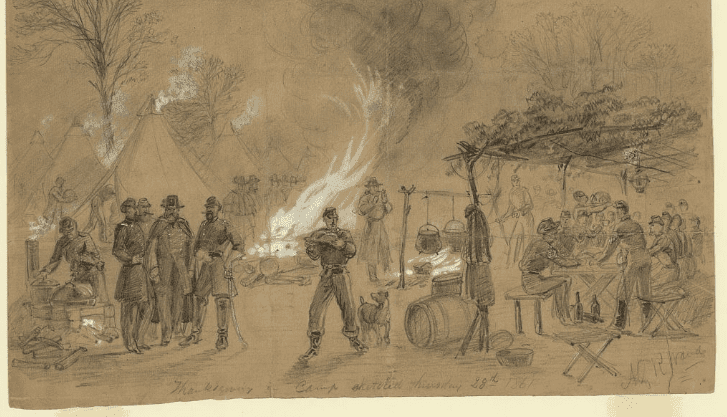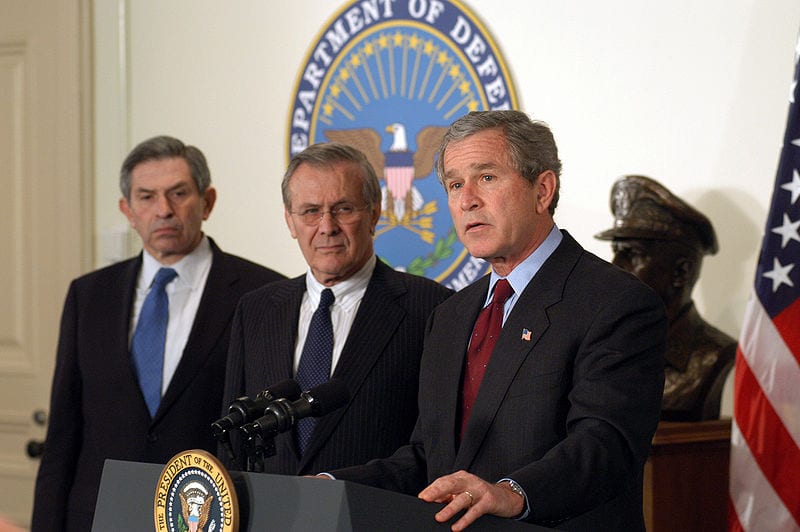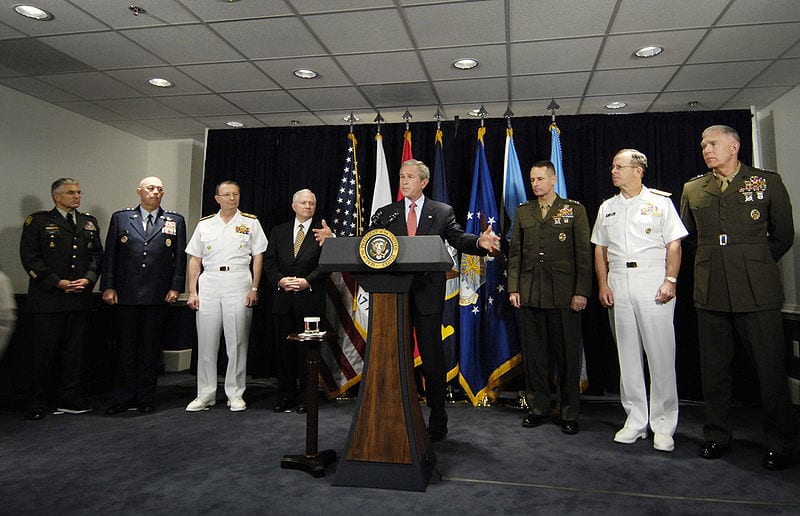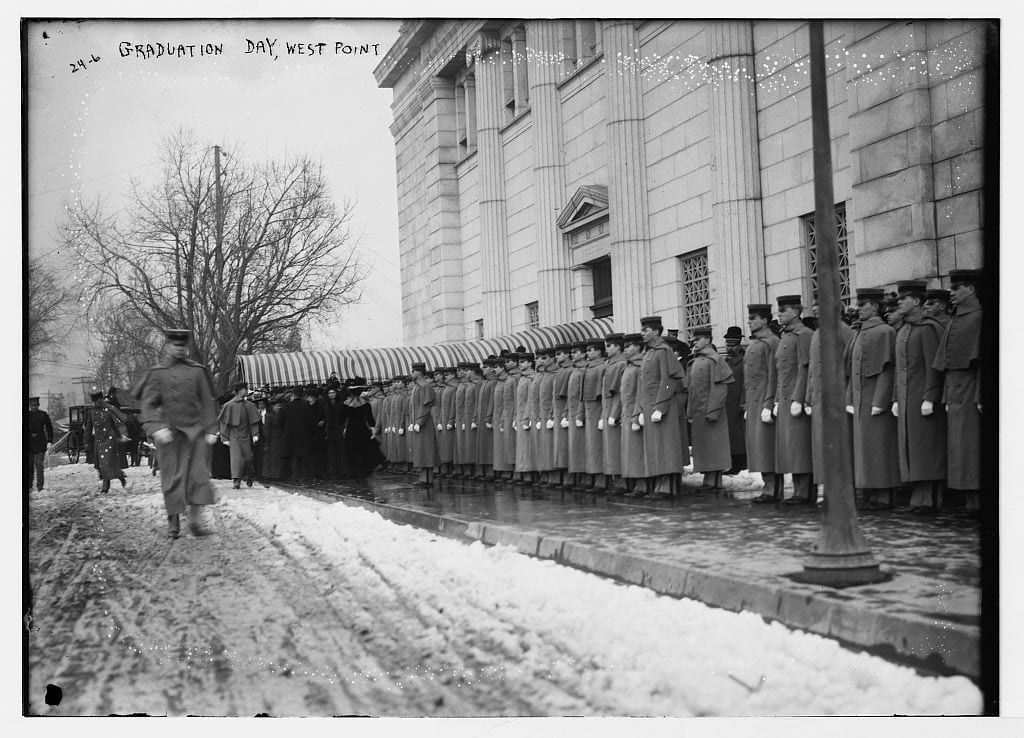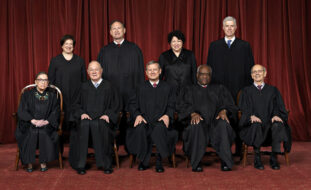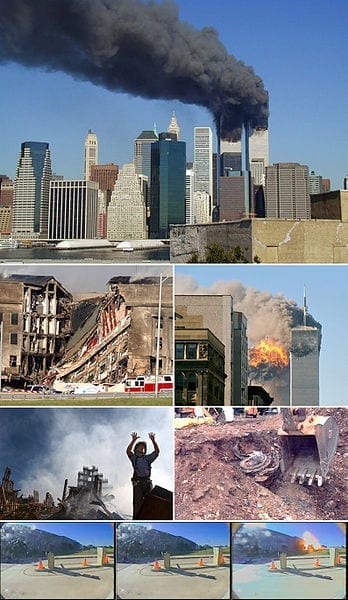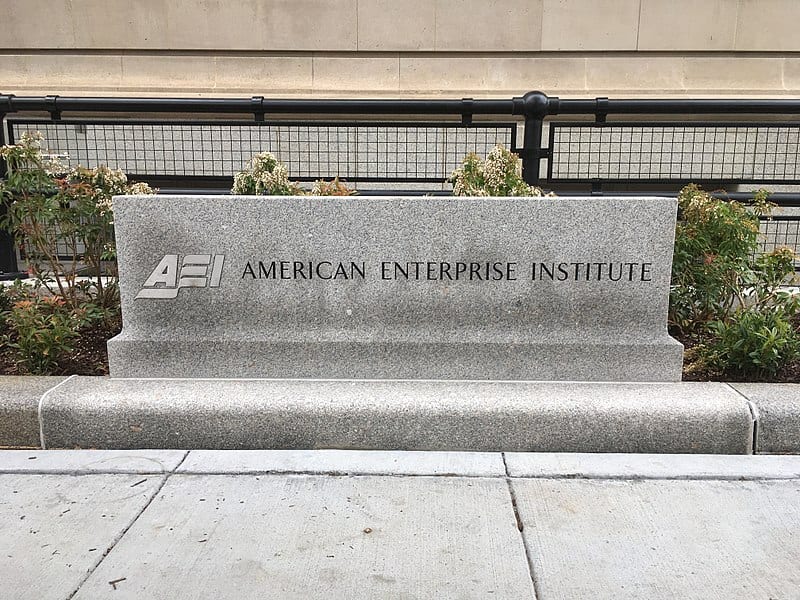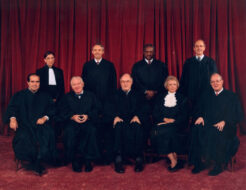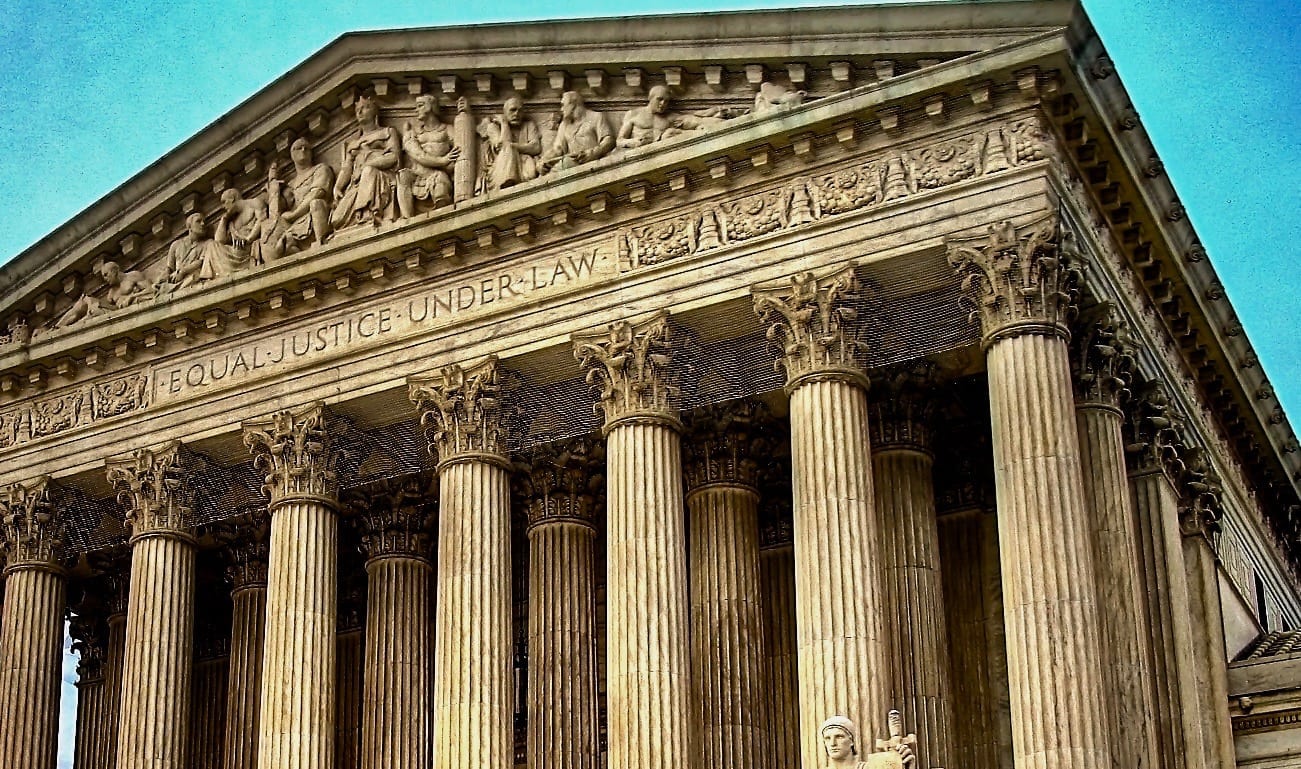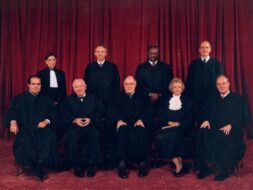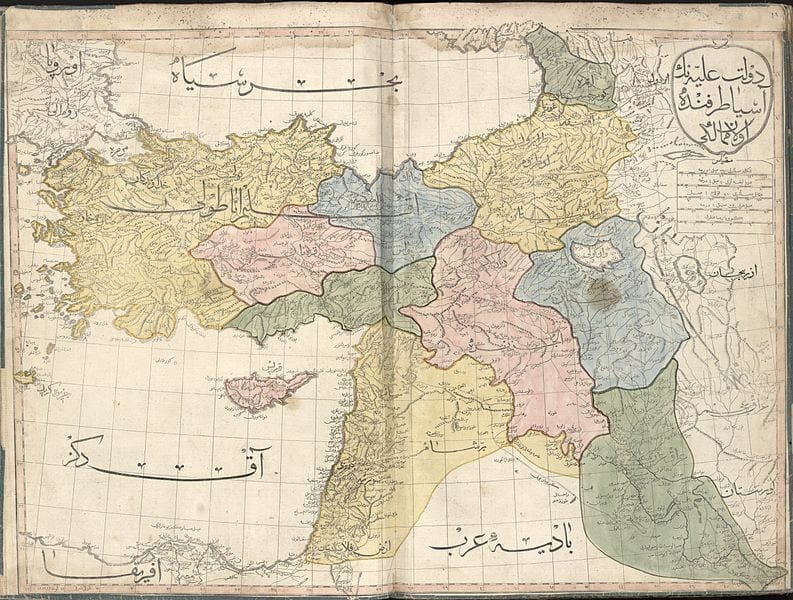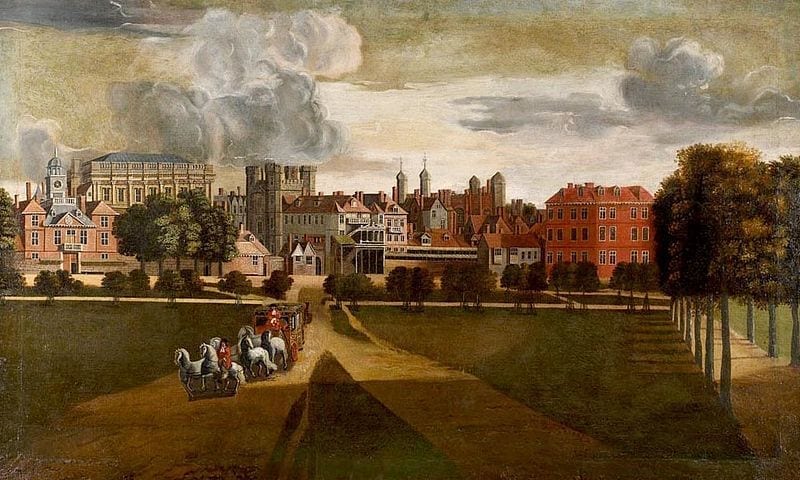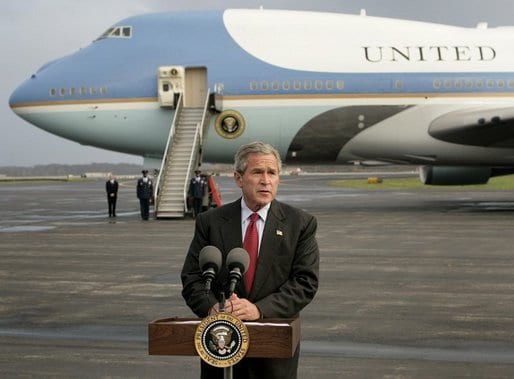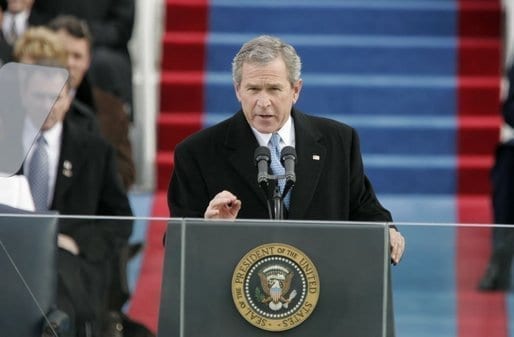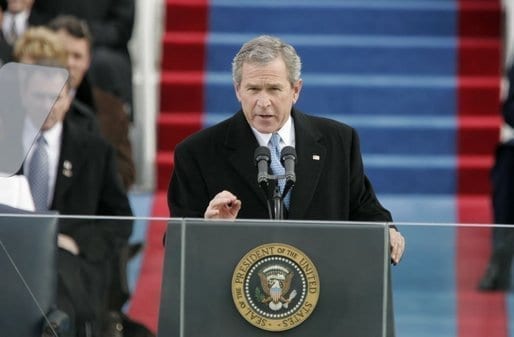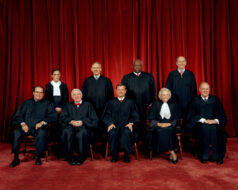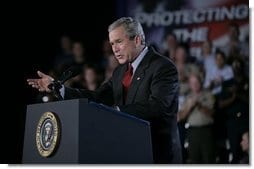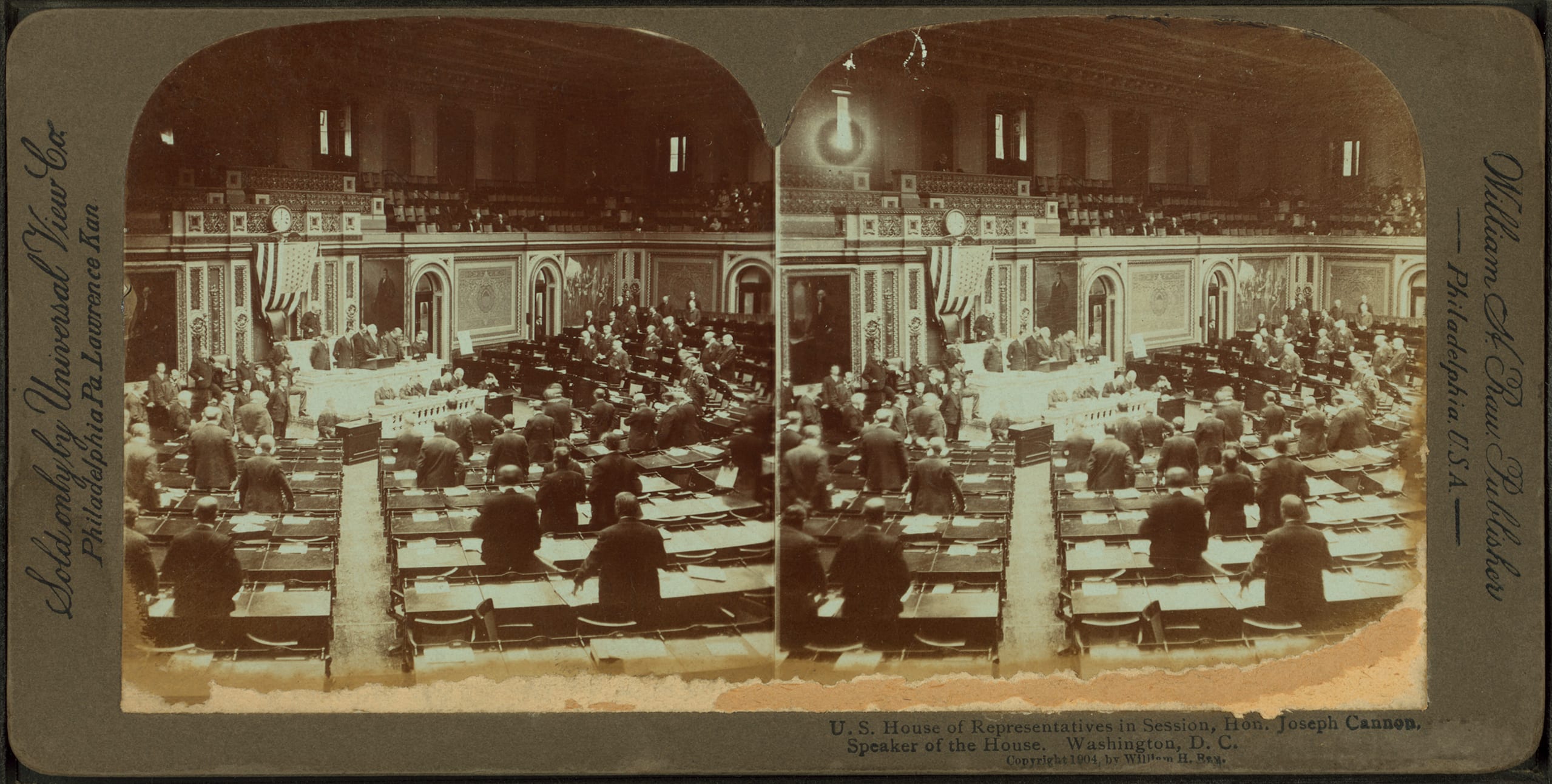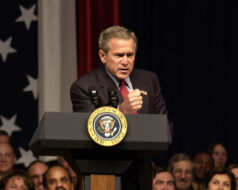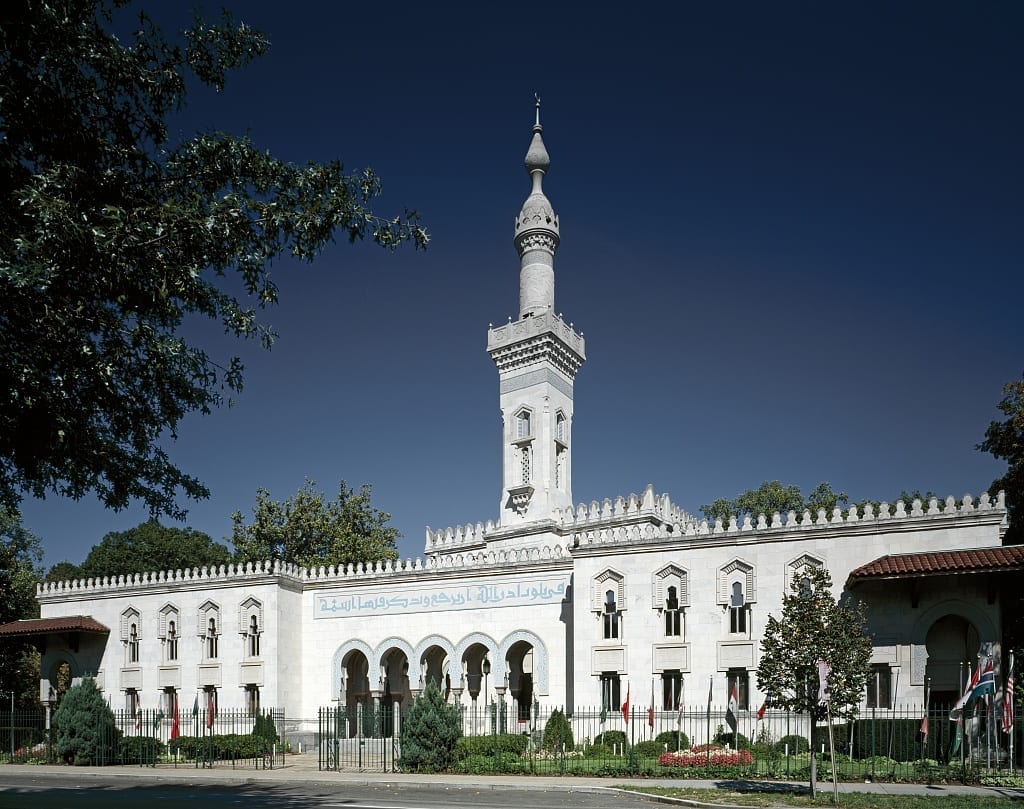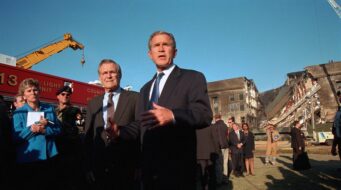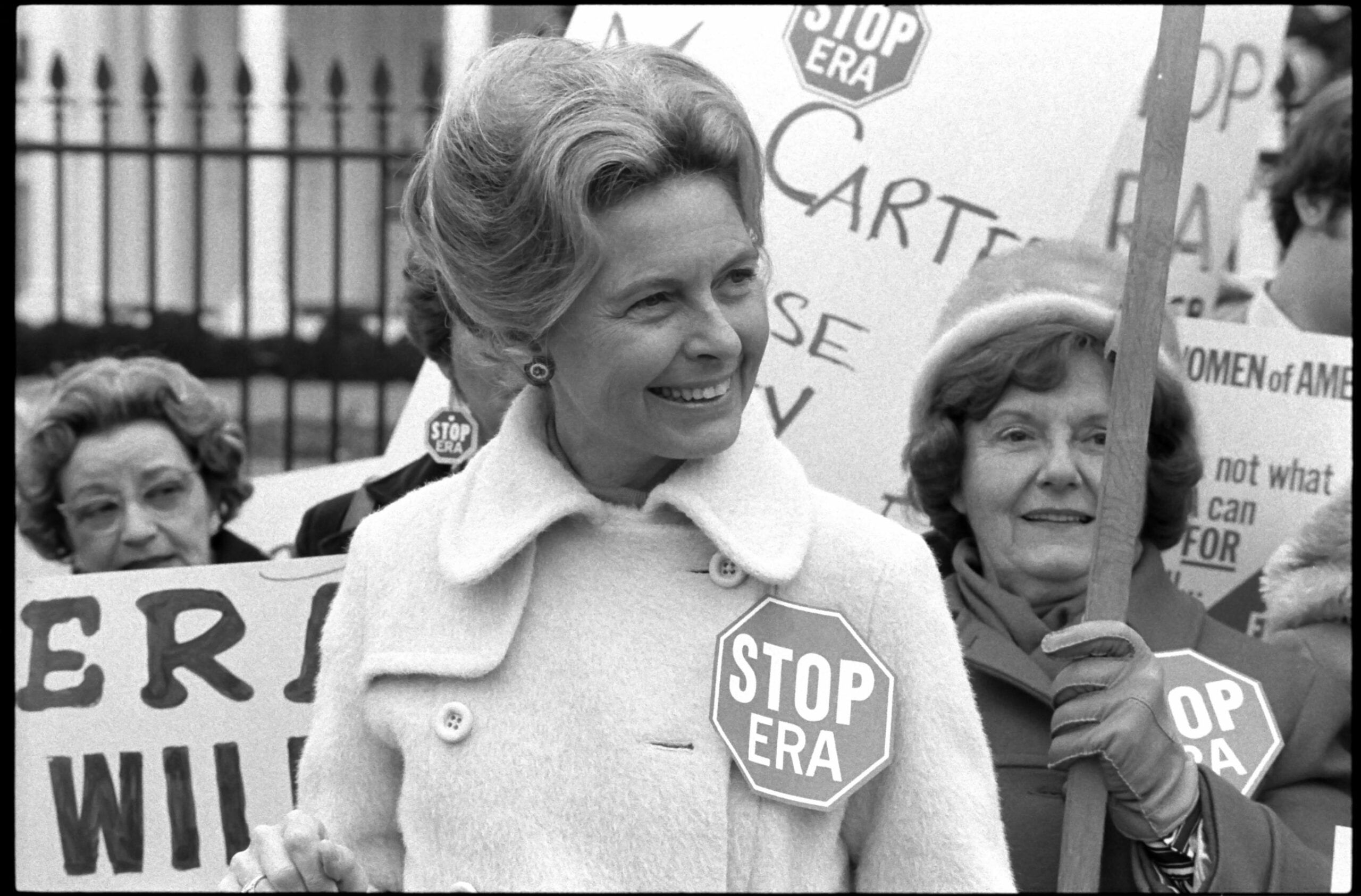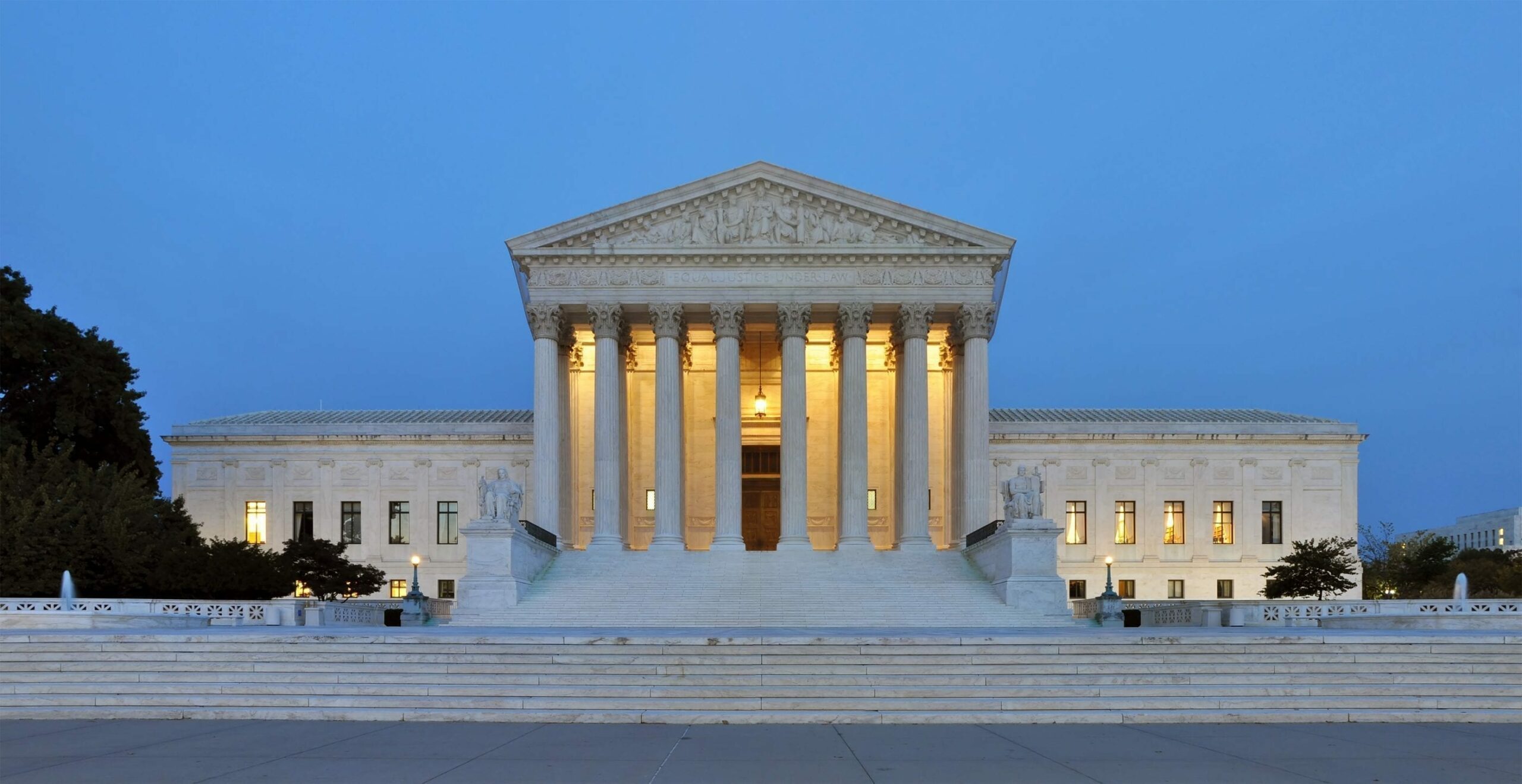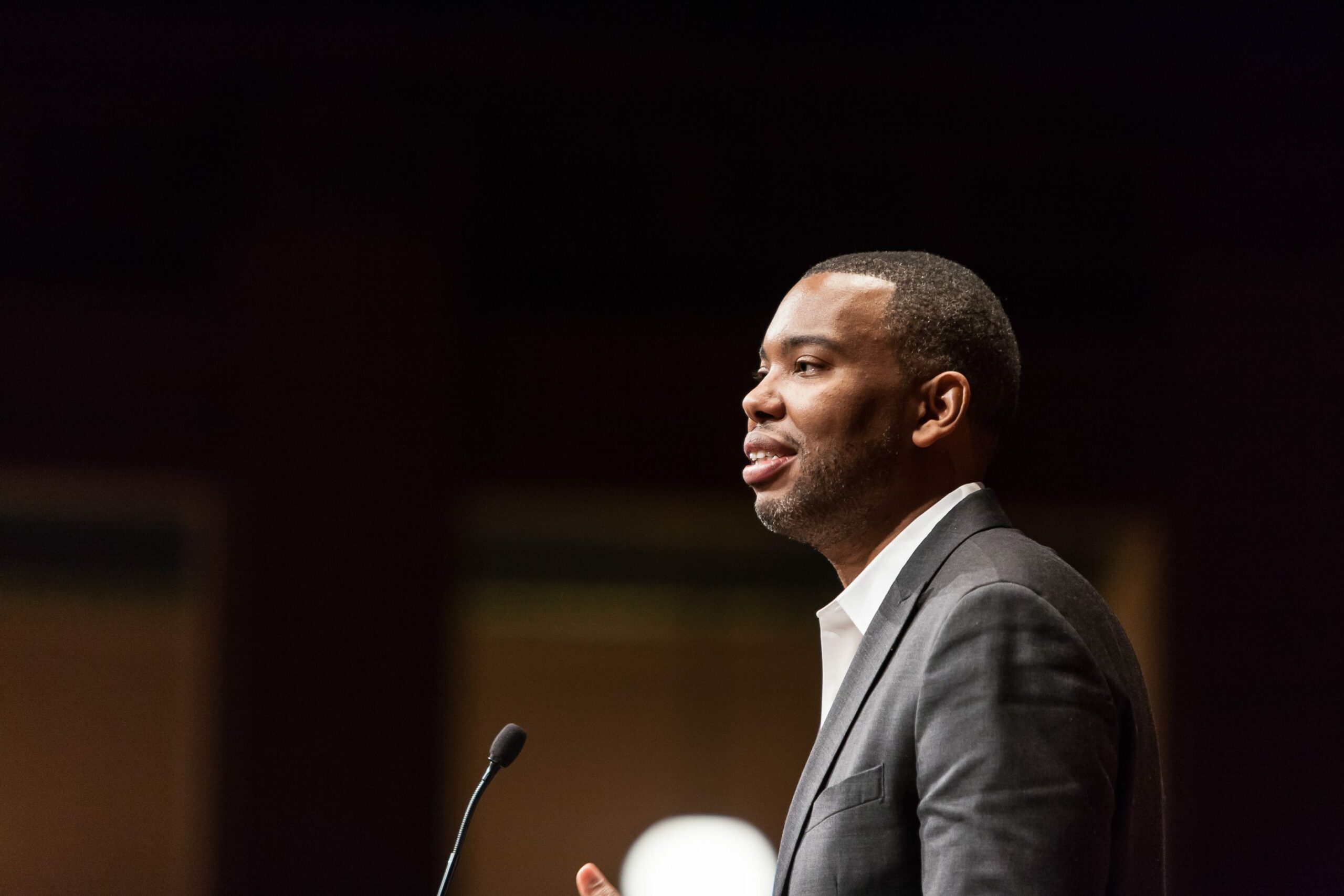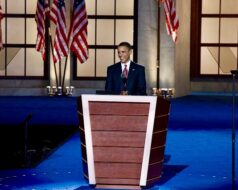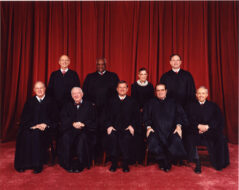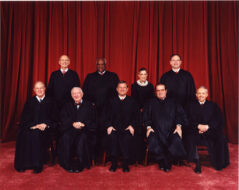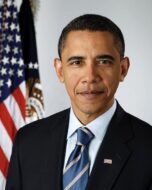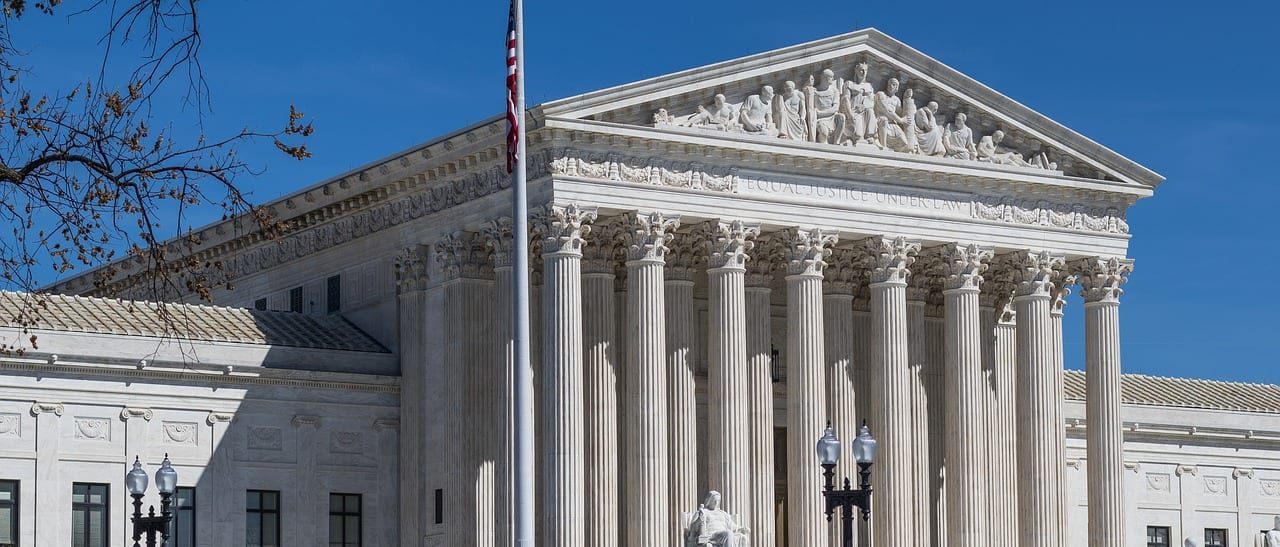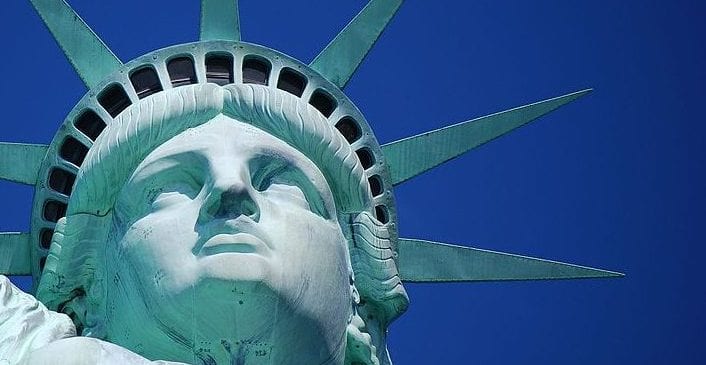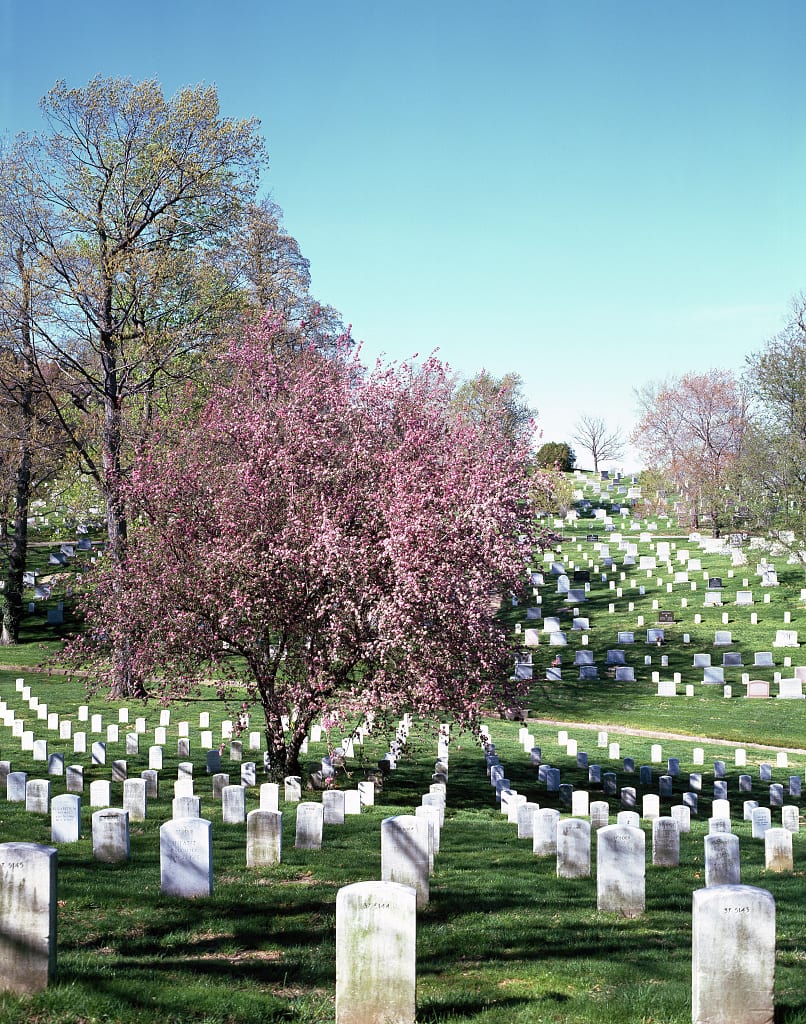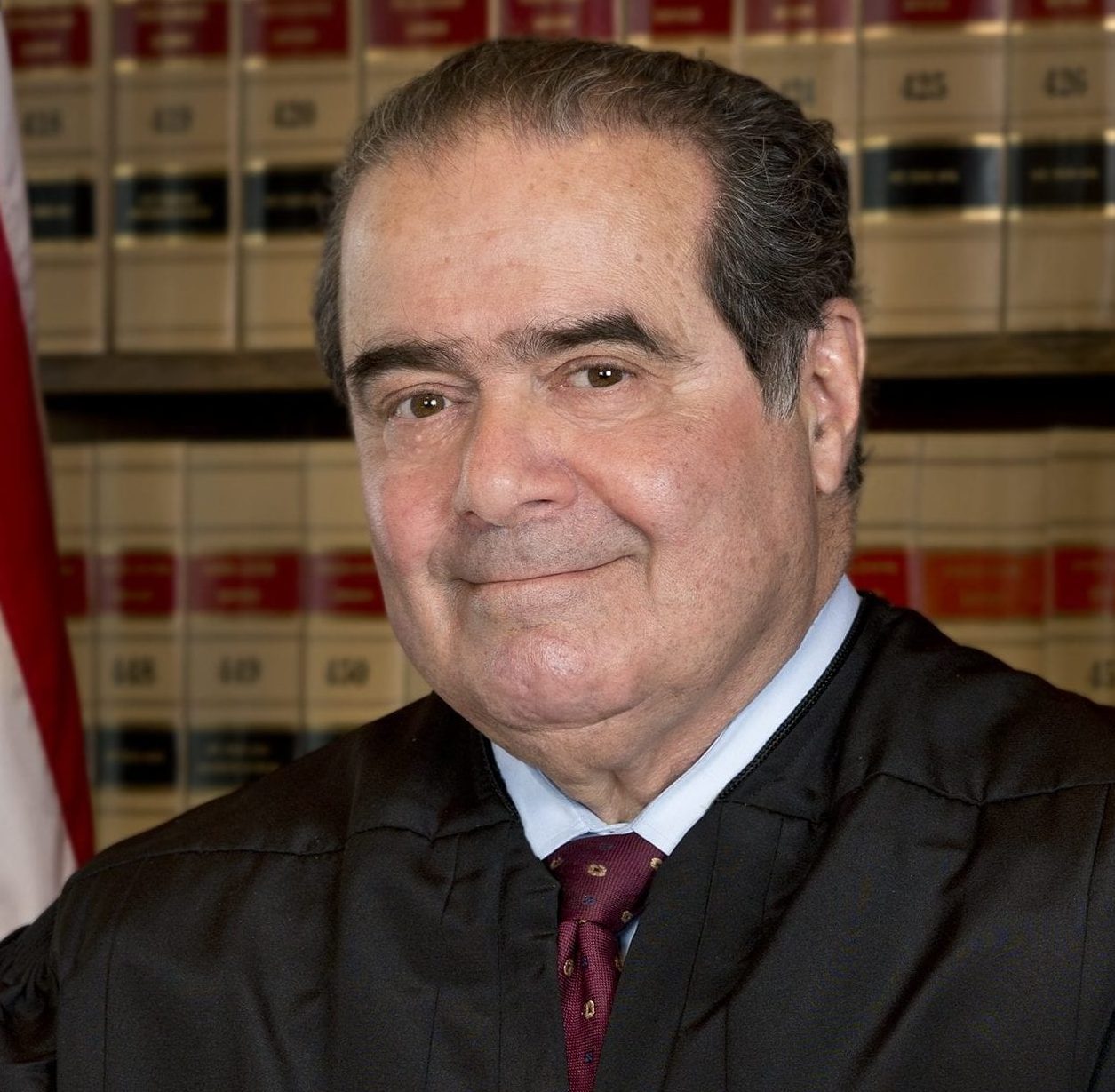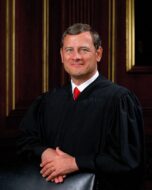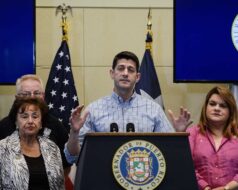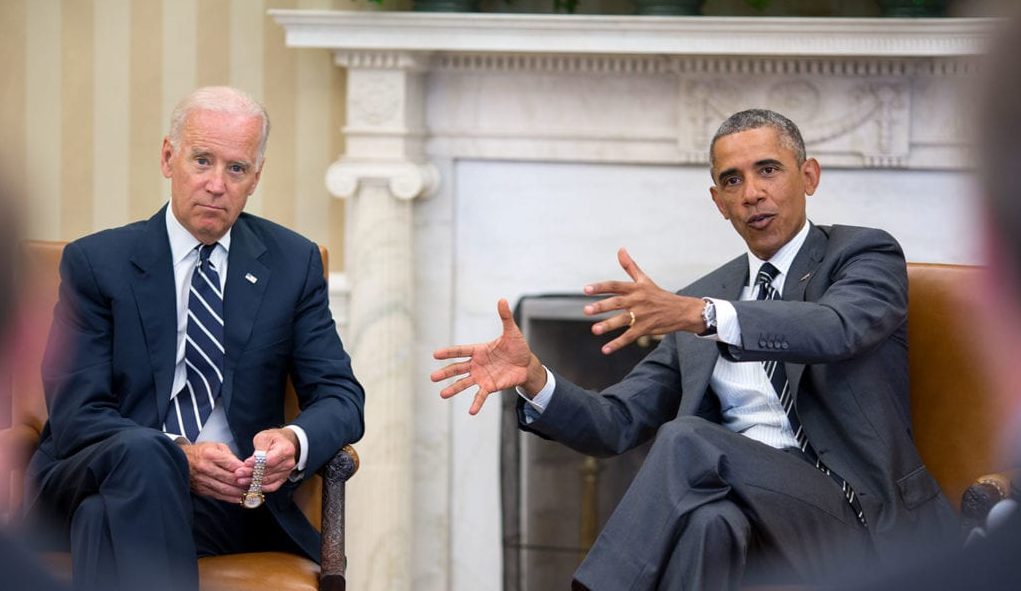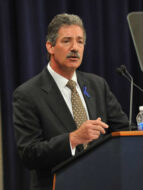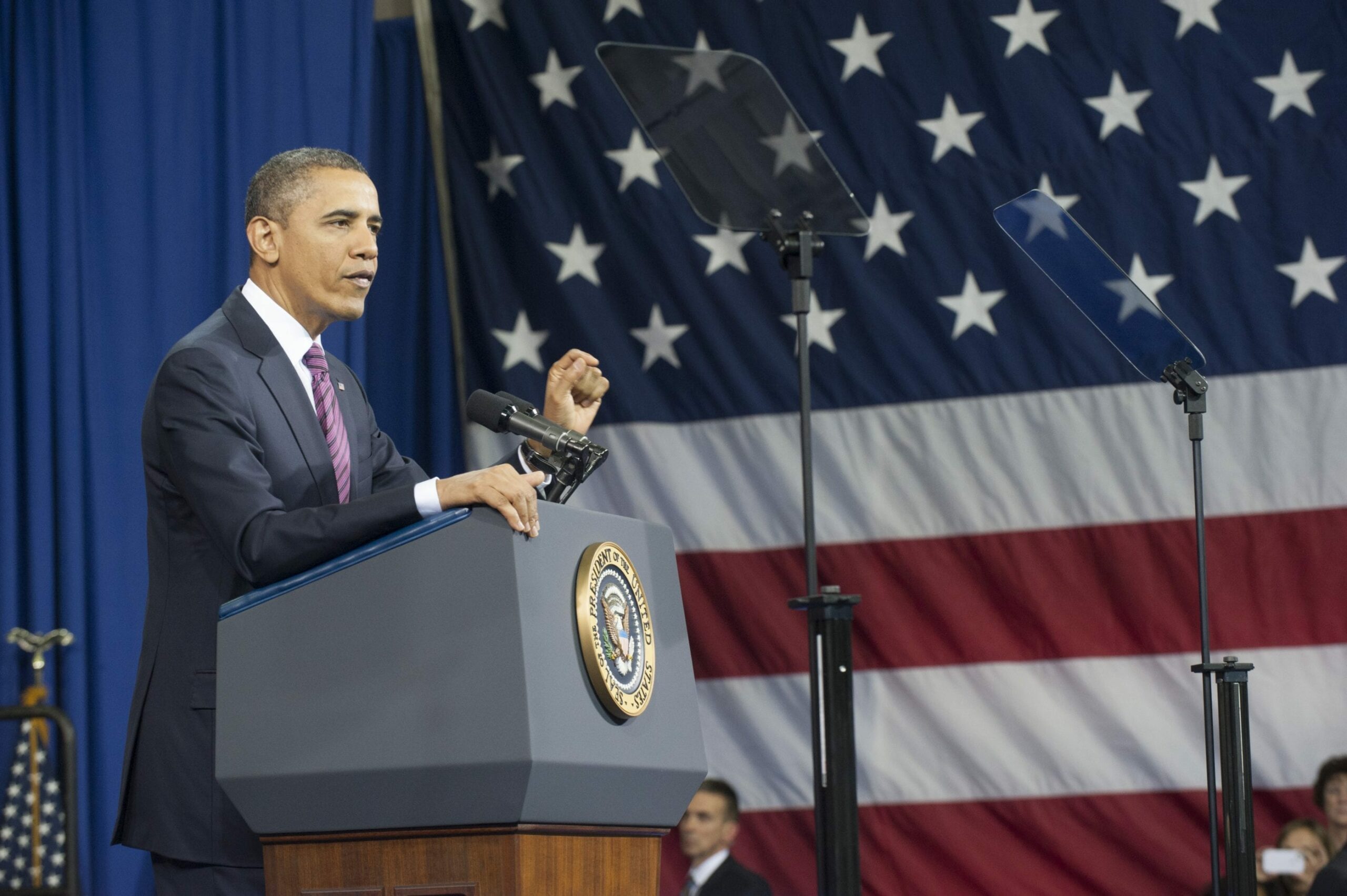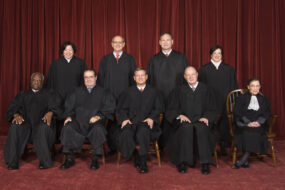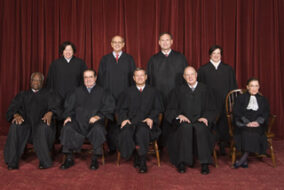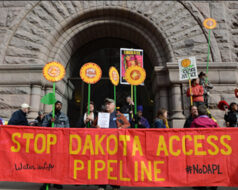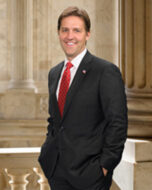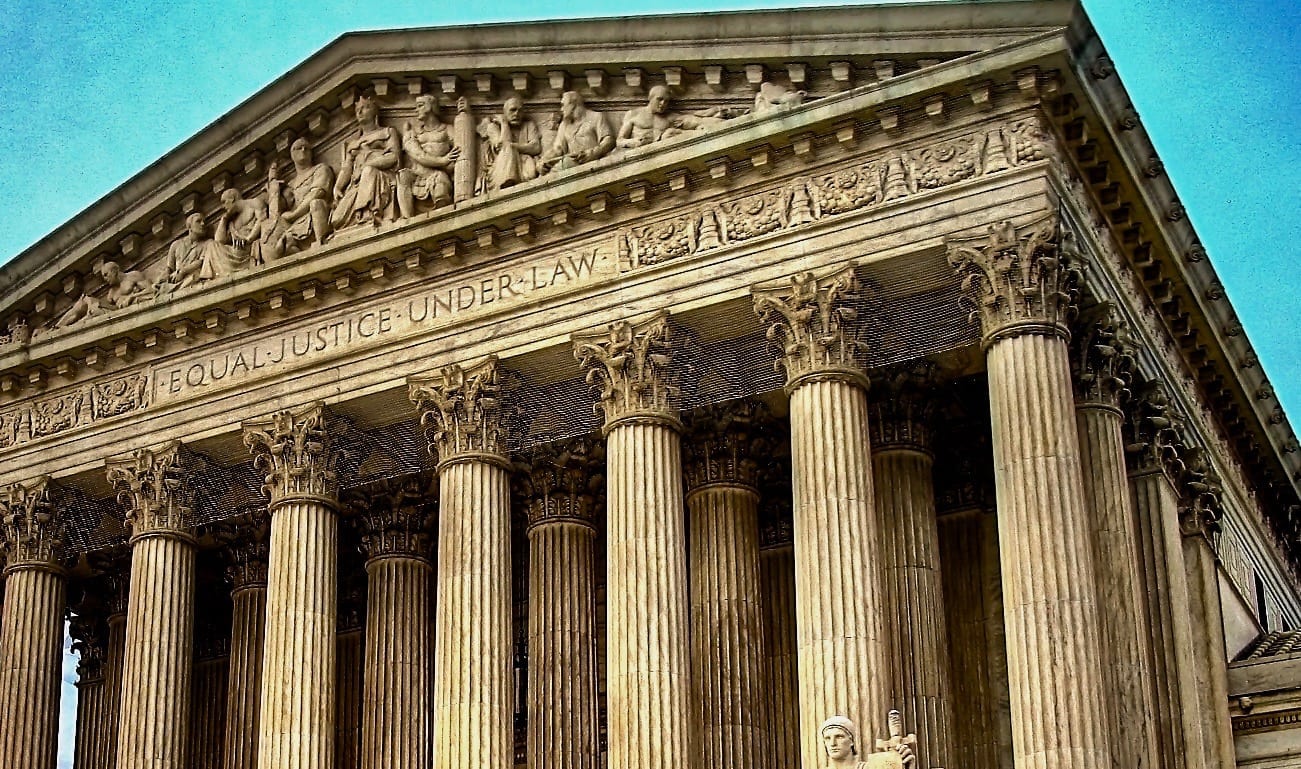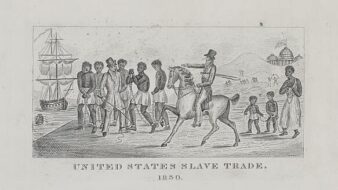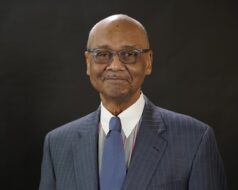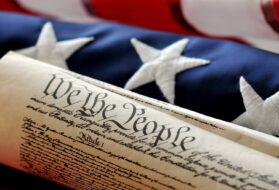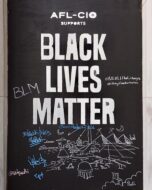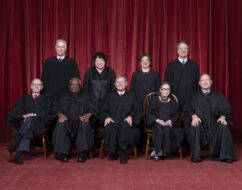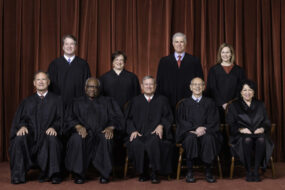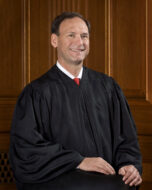
No related resources
Introduction
Barack H. Obama Jr. (1961–) was the forty-fourth president of the United States, and the first African American to hold that office. Born in Honolulu, Hawaii, Obama is the son of a Kenyan father and a white mother from Kansas. He was raised by his mother and his maternal grandparents, the elder Obama having left for Harvard and then returned permanently to Kenya when Barack Jr. was a small boy. He was educated at Punahou, an elite prep school in Honolulu, then at Occidental College and Columbia University, and finally at Harvard Law School. After law school he returned to Chicago, where he had previously worked as a community organizer. There he practiced civil rights law, taught at the University of Chicago Law School, and launched his political career.
Obama was elected to the Illinois state senate in 1996 and then to the U.S. Senate in 2004. Even before he was elected senator, he ascended to consideration as a prospective presidential candidate via the keynote speech he gave at the 2004 Democratic National Convention, in which he issued a stirring affirmation of American unity across partisan and racial lines. His 2008 presidential campaign was progressing smoothly until a news story surfaced revealing that Rev. Jeremiah Wright, the pastor at the Chicago church Obama had attended for twenty years, had repeatedly execrated America in his sermons. The present selection represents candidate Obama’s attempt to calm the ensuing controversy, and it also contains his most concentrated reflection on race in America.
Source: https://www.c-span.org/video/?204519-1/road-white-house. Used in accordance with C-SPAN’s terms and conditions of use. A transcription of the full speech is available at Barack Obama, Address at the National Constitution Center in Philadelphia: “A More Perfect Union”; and at Gerhard Peters and John T. Woolley, The American Presidency Project, https://www.presidency.ucsb.edu/node/277610.
“We the people, in order to form a more perfect union.”
Two hundred and twenty-one years ago, in a hall that still stands across the street, a group of men gathered and, with these simple words, launched America’s improbable experiment in democracy. . . .
The document they produced was eventually signed but ultimately unfinished. It was stained by this nation’s original sin of slavery, a question that divided the colonies and brought the convention to a stalemate until the founders chose to allow the slave trade to continue for at least twenty more years, and to leave any final resolution to future generations.
Of course, the answer to the slavery question was already embedded within our Constitution—a Constitution that had at its very core the ideal of equal citizenship under the law; a Constitution that promised its people liberty, and justice, and a union that could be and should be perfected over time.
And yet words on a parchment would not be enough to deliver slaves from bondage, or provide men and women of every color and creed their full rights and obligations as citizens of the United States. What would be needed were Americans in successive generations who were willing to do their part—through protests and struggle, on the streets and in the courts, through a civil war and civil disobedience and always at great risk—to narrow that gap between the promise of our ideals and the reality of their time. . . .
I am the son of a black man from Kenya and a white woman from Kansas. I was raised with the help of a white grandfather who survived a Depression to serve in Patton’s army1 during World War II and a white grandmother who worked on a bomber assembly line at Fort Leavenworth while he was overseas. I’ve gone to some of the best schools in America and lived in one of the world’s poorest nations. I am married to a black American who carries within her the blood of slaves and slaveowners—an inheritance we pass on to our two precious daughters. I have brothers, sisters, nieces, nephews, uncles, and cousins, of every race and every hue, scattered across three continents, and for as long as I live, I will never forget that in no other country on Earth is my story even possible.
It’s a story that hasn’t made me the most conventional candidate. But it is a story that has seared into my genetic makeup the idea that this nation is more than the sum of its parts—that out of many, we are truly one.
Throughout the first year of this campaign, against all predictions to the contrary, we saw how hungry the American people were for this message of unity. Despite the temptation to view my candidacy through a purely racial lens, we won commanding victories in states with some of the whitest populations in the country. In South Carolina, where the Confederate flag still flies, we built a powerful coalition of African Americans and white Americans.
This is not to say that race has not been an issue in the campaign. At various stages in the campaign, some commentators have deemed me either “too black” or “not black enough.” We saw racial tensions bubble to the surface during the week before the South Carolina primary. The press has scoured every exit poll for the latest evidence of racial polarization, not just in terms of white and black, but black and brown as well.
And yet, it has only been in the last couple of weeks that the discussion of race in this campaign has taken a particularly divisive turn.
On one end of the spectrum, we’ve heard the implication that my candidacy is somehow an exercise in affirmative action; that it’s based solely on the desire of wide-eyed liberals to purchase racial reconciliation on the cheap. On the other end, we’ve heard my former pastor, Rev. Jeremiah Wright, use incendiary language to express views that have the potential not only to widen the racial divide, but views that denigrate both the greatness and the goodness of our nation; that rightly offend white and black alike.
I have already condemned, in unequivocal terms, the statements of Reverend Wright that have caused such controversy. . . .
Given my background, my politics, and my professed values and ideals, there will no doubt be those for whom my statements of condemnation are not enough. Why associate myself with Reverend Wright in the first place, they may ask? Why not join another church? . . .
In my first book, Dreams from My Father, I described the experience of my first service at Trinity:
People began to shout, to rise from their seats and clap and cry out, a forceful wind carrying the reverend’s voice up into the rafters. . . .And in that single note—hope!—I heard something else; at the foot of that cross, inside the thousands of churches across the city, I imagined the stories of ordinary black people merging with the stories of David and Goliath, Moses and Pharaoh, the Christians in the lion’s den, Ezekiel’s field of dry bones. Those stories—of survival, and freedom, and hope—became our story, my story; the blood that had spilled was our blood, the tears our tears; until this black church, on this bright day, seemed once more a vessel carrying the story of a people into future generations and into a larger world. Our trials and triumphs became at once unique and universal, black and more than black; in chronicling our journey, the stories and songs gave us a means to reclaim memories that we didn’t need to feel shame about . . .memories that all people might study and cherish—and with which we could start to rebuild.
Barack Obama, Dreams from My Father
That has been my experience at Trinity. Like other predominantly black churches across the country, Trinity embodies the black community in its entirety—the doctor and the welfare mom, the model student and the former gang-banger. Like other black churches, Trinity’s services are full of raucous laughter and sometimes bawdy humor. They are full of dancing, clapping, screaming, and shouting that may seem jarring to the untrained ear. The church contains in full the kindness and cruelty, the fierce intelligence and the shocking ignorance, the struggles and successes, the love and yes, the bitterness and bias that make up the black experience in America. . . .
The fact is that the comments that have been made and the issues that have surfaced over the last few weeks reflect the complexities of race in this country that we’ve never really worked through—a part of our union that we have yet to perfect. And if we walk away now, if we simply retreat into our respective corners, we will never be able to come together and solve challenges like health care, or education, or the need to find good jobs for every American.
Understanding this reality requires a reminder of how we arrived at this point. As William Faulkner once wrote, “The past isn’t dead and buried. In fact, it isn’t even past.”2 We do not need to recite here the history of racial injustice in this country. But we do need to remind ourselves that so many of the disparities that exist in the African American community today can be directly traced to inequalities passed on from an earlier generation that suffered under the brutal legacy of slavery and Jim Crow.
Segregated schools were, and are, inferior schools; we still haven’t fixed them, fifty years after Brown v. Board of Education, and the inferior education they provided, then and now, helps explain the pervasive achievement gap between today’s black and white students.
Legalized discrimination—where blacks were prevented, often through violence, from owning property, or loans were not granted to African American business owners, or black homeowners could not access FHA mortgages, or blacks were excluded from unions, or the police force, or fire departments—meant that black families could not amass any meaningful wealth to bequeath to future generations. That history helps explain the wealth and income gap between black and white, and the concentrated pockets of poverty that persists in so many of today’s urban and rural communities.
A lack of economic opportunity among black men, and the shame and frustration that came from not being able to provide for one’s family, contributed to the erosion of black families—a problem that welfare policies for many years may have worsened. And the lack of basic services in so many urban black neighborhoods—parks for kids to play in, police walking the beat, regular garbage pick-up and building code enforcement—all helped create a cycle of violence, blight, and neglect that continue to haunt us.
This is the reality in which Reverend Wright and other African Americans of his generation grew up. They came of age in the late fifties and early sixties, a time when segregation was still the law of the land and opportunity was systematically constricted. What’s remarkable is not how many failed in the face of discrimination, but rather how many men and women overcame the odds; how many were able to make a way out of no way for those like me who would come after them.
But for all those who scratched and clawed their way to get a piece of the American Dream, there were many who didn’t make it—those who were ultimately defeated, in one way or another, by discrimination. That legacy of defeat was passed on to future generations—those young men and increasingly young women who we see standing on street corners or languishing in our prisons, without hope or prospects for the future. Even for those blacks who did make it, questions of race, and racism, continue to define their worldview in fundamental ways. For the men and women of Reverend Wright’s generation, the memories of humiliation and doubt and fear have not gone away; nor has the anger and the bitterness of those years. . . .
. . .That anger is not always productive; indeed, all too often it distracts attention from solving real problems; it keeps us from squarely facing our own complicity in our condition, and prevents the African American community from forging the alliances it needs to bring about real change. But the anger is real; it is powerful; and to simply wish it away, to condemn it without understanding its roots, only serves to widen the chasm of misunderstanding that exists between the races.
In fact, a similar anger exists within segments of the white community. Most working- and middle-class white Americans don’t feel that they have been particularly privileged by their race. Their experience is the immigrant experience—as far as they’re concerned, no one’s handed them anything, they’ve built it from scratch. They’ve worked hard all their lives, many times only to see their jobs shipped overseas or their pension dumped after a lifetime of labor. They are anxious about their futures, and feel their dreams slipping away; in an era of stagnant wages and global competition, opportunity comes to be seen as a zero-sum game, in which your dreams come at my expense. So when they are told to bus their children to a school across town; when they hear that an African American is getting an advantage in landing a good job or a spot in a good college because of an injustice that they themselves never committed; when they’re told that their fears about crime in urban neighborhoods are somehow prejudiced, resentment builds over time. . . .
Just as black anger often proved counterproductive, so have these white resentments distracted attention from the real culprits of the middle-class squeeze—a corporate culture rife with inside dealing, questionable accounting practices, and short-term greed; a Washington dominated by lobbyists and special interests; economic policies that favor the few over the many. And yet, to wish away the resentments of white Americans, to label them as misguided or even racist, without recognizing they are grounded in legitimate concerns—this too widens the racial divide, and blocks the path to understanding. . . .
For the African American community, that path means embracing the burdens of our past without becoming victims of our past. It means continuing to insist on a full measure of justice in every aspect of American life. But it also means binding our particular grievances—for better health care, and better schools, and better jobs—to the larger aspirations of all Americans—the white woman struggling to break the glass ceiling, the white man who’s been laid off, the immigrant trying to feed his family. And it means taking full responsibility for own lives—by demanding more from our fathers, and spending more time with our children, and reading to them, and teaching them that while they may face challenges and discrimination in their own lives, they must never succumb to despair or cynicism; they must always believe that they can write their own destiny. . . .
In the white community, the path to a more perfect union means acknowledging that what ails the African American community does not just exist in the minds of black people; that the legacy of discrimination—and current incidents of discrimination, while less overt than in the past—are real and must be addressed. Not just with words, but with deeds—by investing in our schools and our communities; by enforcing our civil rights laws and ensuring fairness in our criminal justice system; by providing this generation with ladders of opportunity that were unavailable for previous generations. It requires all Americans to realize that your dreams do not have to come at the expense of my dreams; that investing in the health, welfare, and education of black and brown and white children will ultimately help all of America prosper.
In the end, then, what is called for is nothing more, and nothing less, than what all the world’s great religions demand—that we do unto others as we would have them do unto us. Let us be our brother’s keeper, Scripture tells
us. Let us be our sister’s keeper. Let us find that common stake we all have in one another, and let our politics reflect that spirit as well. . . .
I would not be running for president if I didn’t believe with all my heart that this is what the vast majority of Americans want for this country. This union may never be perfect, but generation after generation has shown that it can always be perfected. And today, whenever I find myself feeling doubtful or cynical about this possibility, what gives me the most hope is the next generation—the young people whose attitudes and beliefs and openness to change have already made history in this election.
There is one story in particularly that I’d like to leave you with today—a story I told when I had the great honor of speaking on Dr. King’s birthday at his home church, Ebenezer Baptist, in Atlanta.
There is a young, twenty-three-year-old white woman named Ashley Baia who organized for our campaign in Florence, South Carolina. She had been working to organize a mostly African American community since the beginning of this campaign, and one day she was at a roundtable discussion where everyone went around telling their story and why they were there.
And Ashley said that when she was nine years old, her mother got cancer. And because she had to miss days of work, she was let go and lost her health care. They had to file for bankruptcy, and that’s when Ashley decided that she had to do something to help her mom.
She knew that food was one of their most expensive costs, and so Ashley convinced her mother that what she really liked and really wanted to eat more than anything else was mustard and relish sandwiches. Because that
was the cheapest way to eat.
She did this for a year until her mom got better, and she told everyone at the roundtable that the reason she joined our campaign was so that she could help the millions of other children in the country who want and need to help their parents too.
Now Ashley might have made a different choice. Perhaps somebody told her along the way that the source of her mother’s problems were blacks who were on welfare and too lazy to work, or Hispanics who were coming into the country illegally. But she didn’t. She sought out allies in her fight against injustice.
Anyway, Ashley finishes her story and then goes around the room and asks everyone else why they’re supporting the campaign. They all have different stories and reasons. Many bring up a specific issue. And finally they come to this elderly black man who’s been sitting there quietly the entire time. And Ashley asks him why he’s there. And he does not bring up a specific issue. He does not say health care or the economy. He does not say education or the war. He does not say that he was there because of Barack Obama. He simply says to everyone in the room, “I am here because of Ashley.”
“I’m here because of Ashley.” By itself, that single moment of recognition between that young white girl and that old black man is not enough. It is not enough to give health care to the sick, or jobs to the jobless, or education to our children.
But it is where we start. It is where our union grows stronger. And as so many generations have come to realize over the course of the 221 years since a band of patriots signed that document in Philadelphia, that is where the perfection begins.
District of Columbia v. Heller
June 26, 2008
Conversation-based seminars for collegial PD, one-day and multi-day seminars, graduate credit seminars (MA degree), online and in-person.
